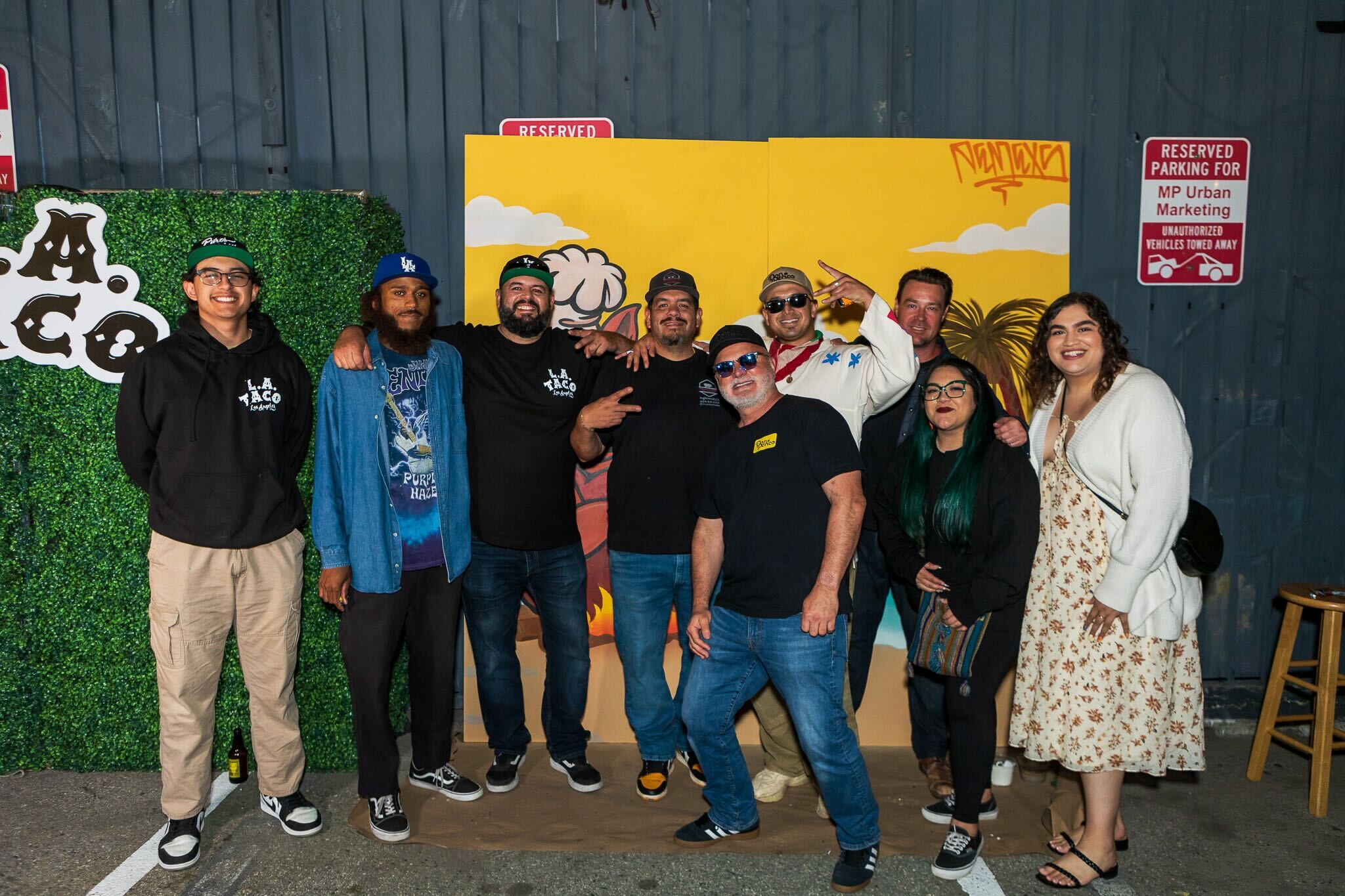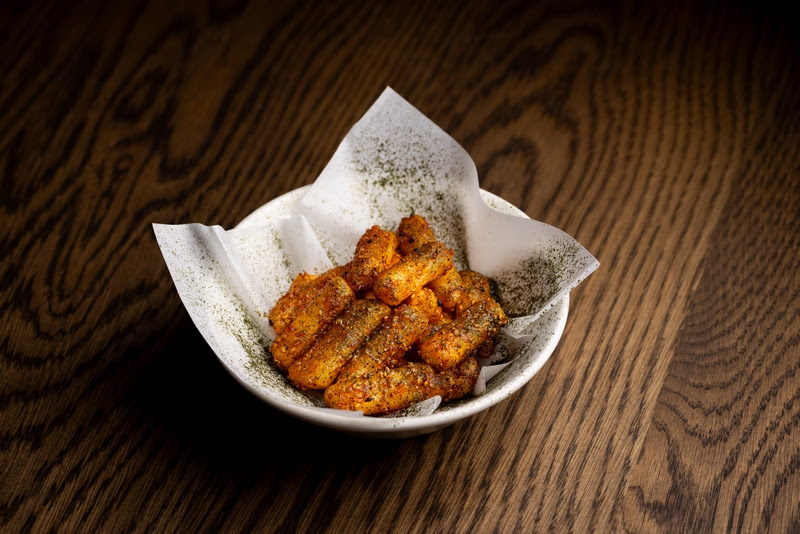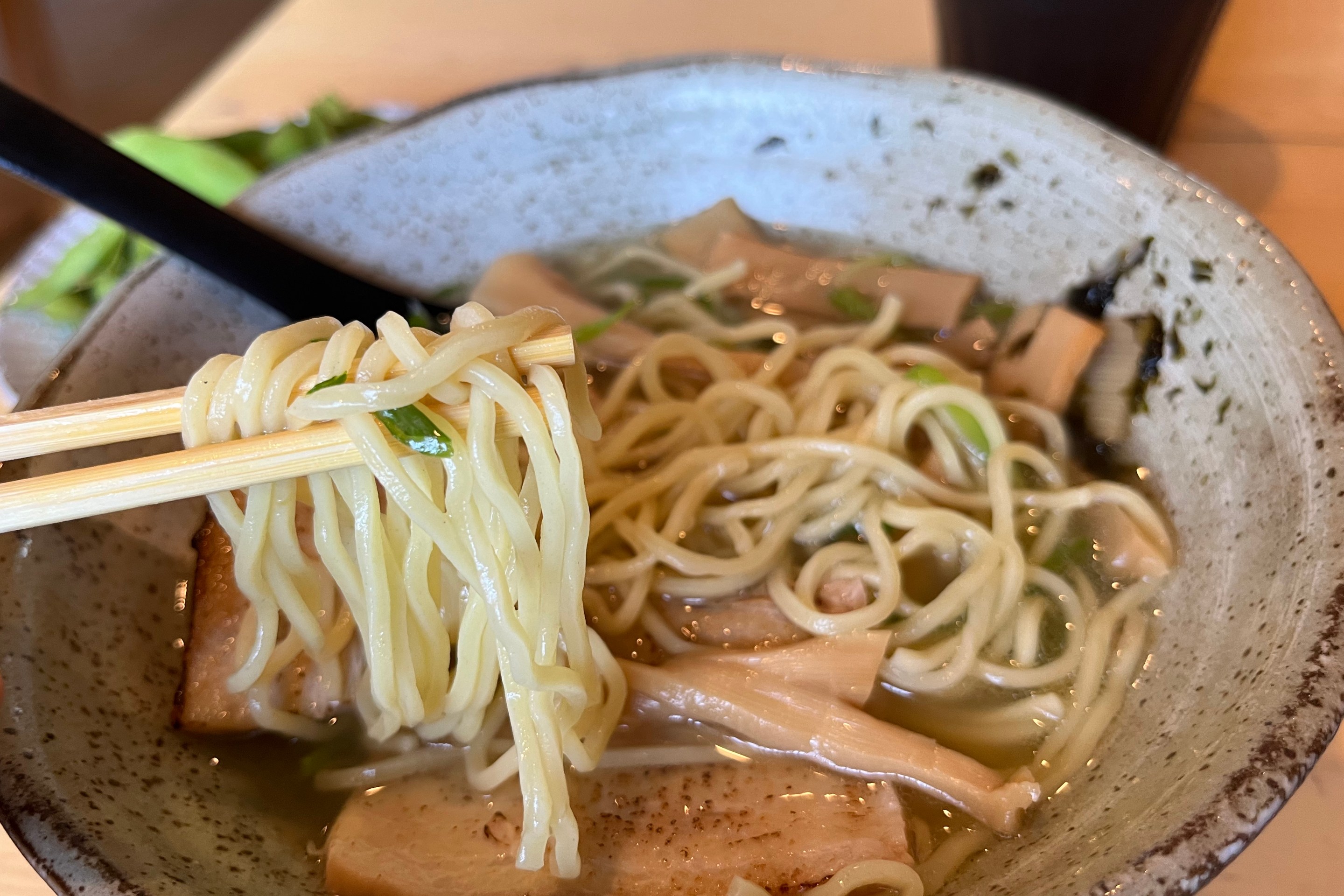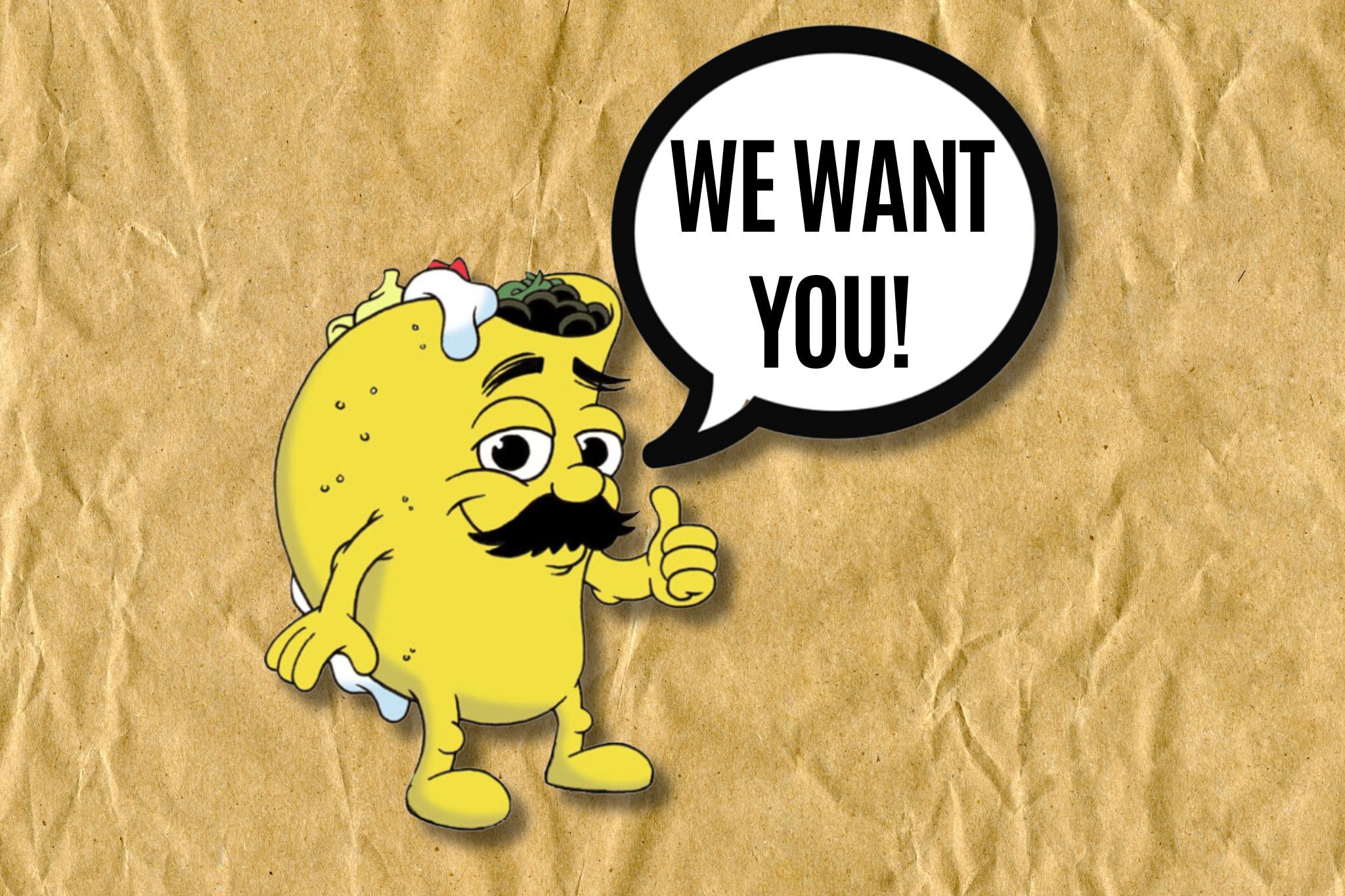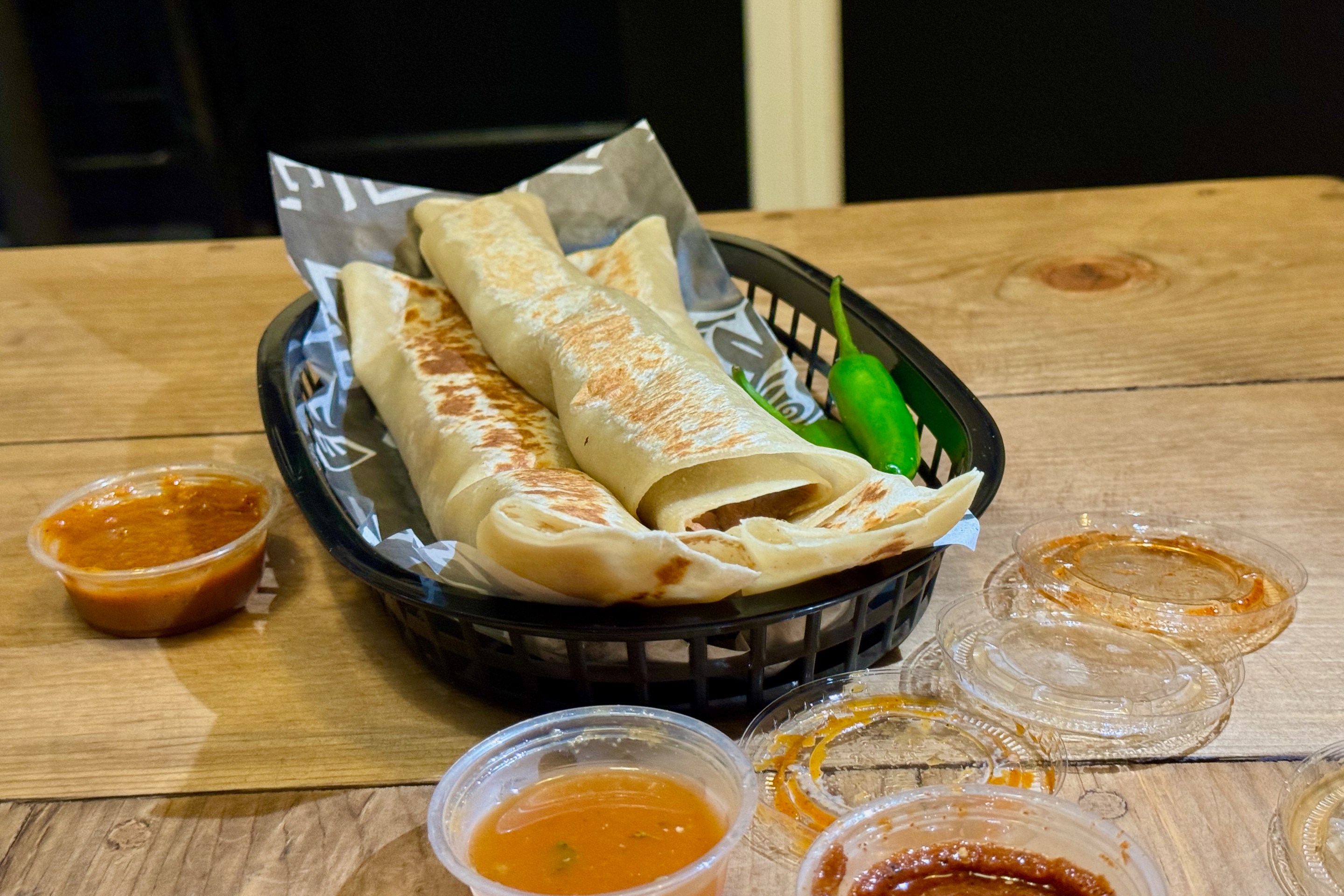Where To Find Psychedelic Mushrooms In L.A. (or Anywhere In the U.S.)
Educate yourself in this brave new world of bogus brands trying to cash in on the recent trend, which demonstrates the scientifically-backed mental health benefits of psychedelic mushrooms.
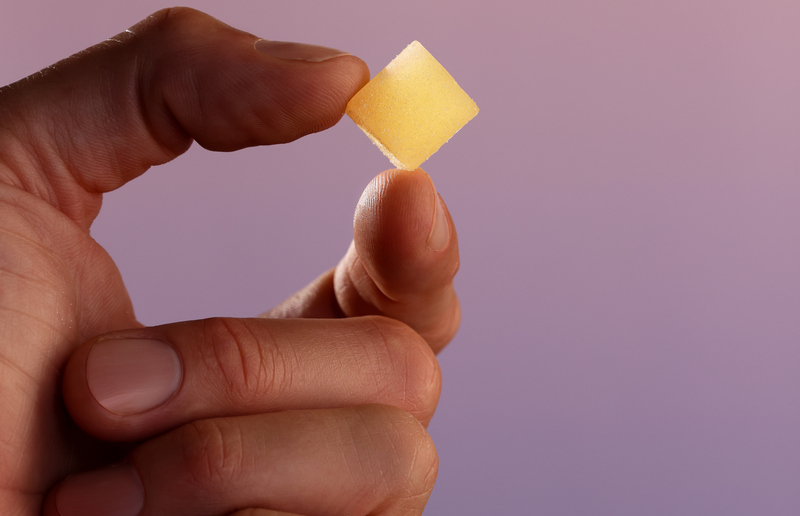
Like death caps after a deluge, a public mania for psychedelic mushrooms has burst and blossomed across the land.
No longer simply fodder for festival goers, psychonauts, or those tracing the Yaqui shadow of Don Juan Matus, the therapeutic value of tripping on shrooms is continually being held up as a potential cure for post-traumatic stress, depression, anxiety, OCD, and other mental health challenges.
Modern medicine may be finally catching up to what shamanic sages stretching from Stone Age Africa, ancient Greece, Central Asia, Scandinavia, and across the Mesoamerican and pre-Columbian Americas understood long ago: that mushrooms, in addition to offering hallucinogenic high times, can guide users to a better place both spiritually and mentally. They can even lead to better sex.
Through their newfound acceptance and increasingly looser legal constraints, psychedelic mushrooms are taking off.
Clinics guiding patients through psychedelic therapy have materialized in Colorado, Oregon, where shrooms have been decriminalized, and even among high-end Jamaican resorts. California is now weighing a bill that would permit the same, following Gavin Newsom’s 2023 veto of a law that would have decriminalized psilocybin mushrooms.
It's not just in the headlines that we see “boomers” booming. Everyone around us in Los Angeles seems to be talking about shrooms these days.
There’s that old friend with an edibles baking business, whispering at a premiere, “If you need shroom truffles, hit me up.” The co-worker just got back from taking a “heroic dose” to "kill his ego" in Mexico.
There’s the party for an adaptogenics brand, where the gift bag comes complete with a circle of psilocybin chocolate. And the sordid wheedle sporadically creeping into our DMs, come-hithering, “Shrooms, ‘cid, DMT… glocks.”
There are stories of a stand hawking psilocybin mushrooms within the scope of a busy farmer’s market and talk of trend-chasers hitting vape pens full of shroomy dreams on star-lined hiking trails.
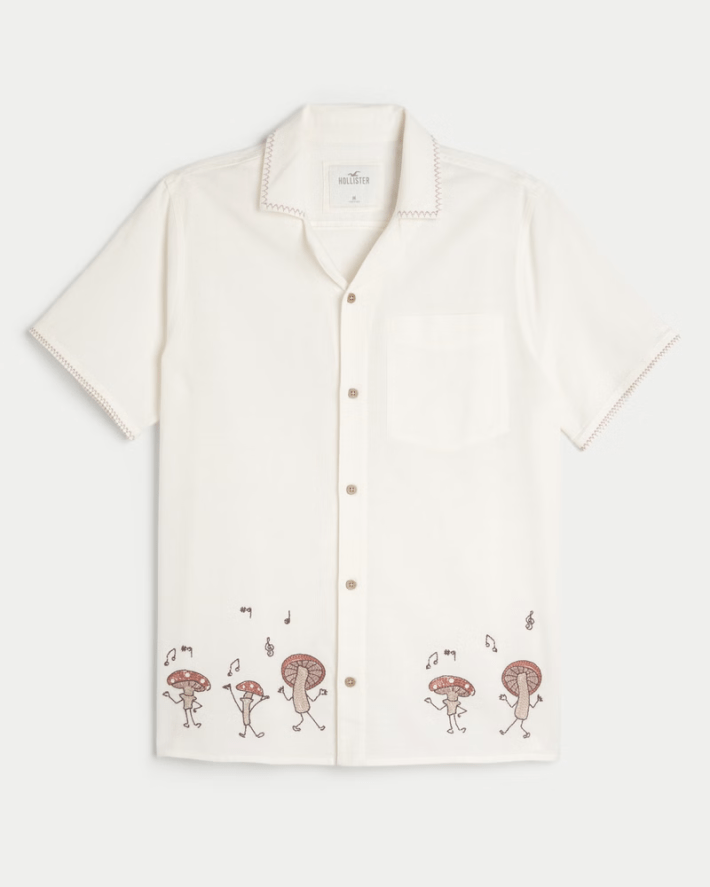
Meanwhile, fly agarics, milk caps, turkey tails, and Mycenae make for the biggest motifs of the moment, from Etsy to Burro to Hollister to Fried Rice kimonos; often anthropomorphic, occasionally phallic, and otherwise.
Shrooms, by all measures, are “in.”
With their therapeutic benefits increasingly being touted, as shrooms themselves remain federally illegal, we figured it was about time to see just how openly one can find legit shrooms in Los Angeles. Both are in the hope of helping readers who may benefit from having a source for their mental health and mind-elevation needs and seeing how easily obtainable they may be in 2024.
Along the way, we learned that there are two types of psychedelic-therapeutic compounds being derived from mushrooms and that both are easily obtainable from home.
We also learned that there’s a whole lot of bullshit out there.
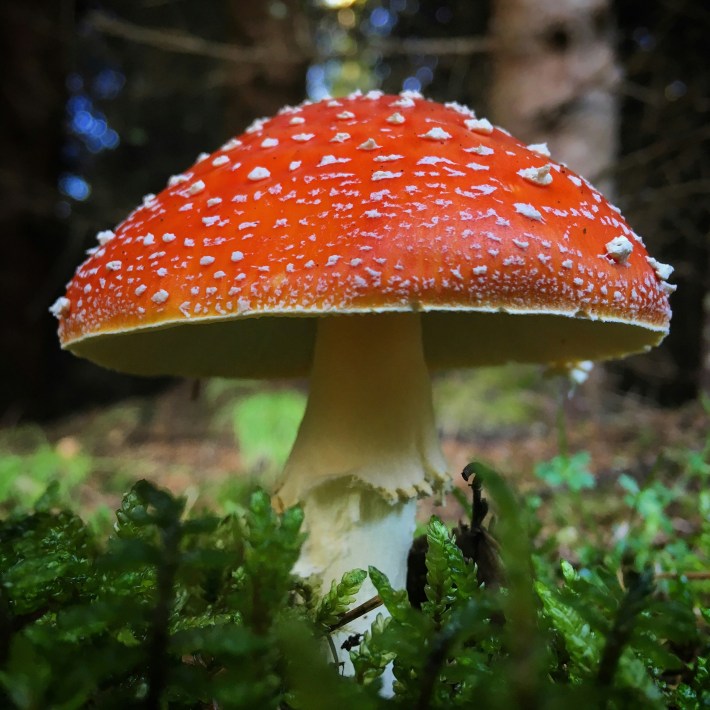
“Magic” Mushrooms For Sale
We began by the beach.
Instagram ads kept popping up in our feeds touting a shop that sells “magic mushrooms” on a touristy stretch of Westside sand.
The posts came saturated with candy-striped spreads of packages containing chocolates and gummies. Unsubtle promises abounded of “elevation,” “seeing colors,” and “pushing… your inner-adventurer’s boundaries” next to images of U.F.O. beams, backlit forests, and third eyes all over their bright bags and cans.
We beelined it into a tidy, tiny courtyard store, its walls and glass cases filled with the same packages. Ultimately, all we encountered was confusion. A printed sign on the wall made clear that none of these products contained psilocybin. Browsing the bags, which carried names like “Trippy Hippy” and “Tropical Trip,” we had a hard time determining their exact contents.
Some boasted of “nano-blends” of different adaptogenic shrooms mixed with nootropics, botanicals, derived tryptamines, and beguiling, but typically less illegal and regulated, cannabis compounds like Delta-8.
The products all suggested, in so many words and pictures, that users would have a psychedelic experience. Down to warnings on the packaging about proper dosing, expectations, and setting.
We asked the salesperson if they carried anything with muscimol, the widely legal derivative of amanita muscaria mushrooms that are known to provide a softer psychedelic experience.
The salesperson looked at us like we’d asked them to rob a bank with us. He insisted there was none of that in their products, despite us looking right at a bag with “Amanita Muscaria” written across its front.
“We can’t, um, legally sell any dry products, so these are mostly blends of the things you can take out of them,” they said. “None of these products will make you trip.”
This was confusing, as we were currently holding a $45 bag telling us that 7-10 gummies contained within would have someone seeing “colors.” We were getting synthetic marijuana vibes and, faced with that kind of price tag, made no purchases.
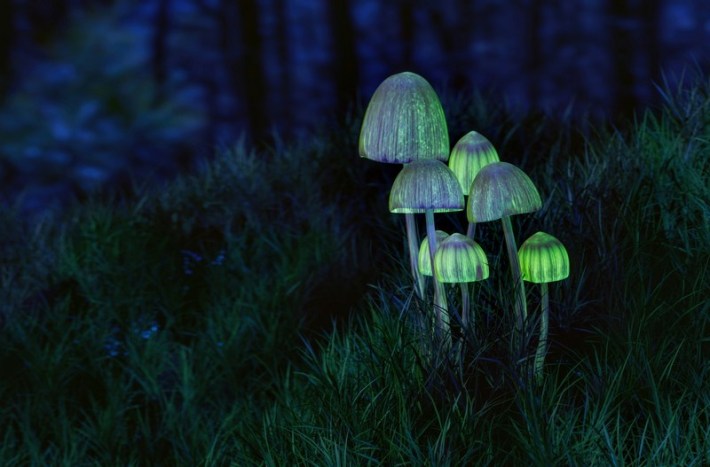
Back in the office, we found the store's Yelp page to see if anyone had had any experiences at this shop. The reviews were not encouraging. Despite a few testimonials from happy customers, the less enamored majority stood forcefully against the place’s very existence:
“Total Scam!! Beware!!”
“My partner and I dropped almost $200 bucks on crap. We felt bamboozled for sure.”
“Beware those expecting real mushrooms. All the products are fake. This place is a scam. Don't waste your time.”
“They sell counterfeit and substances that are not safe for the health promoting it as "real" product when it really isn't. STAY AWAY.”
An online dive into some of these products revealed a whole galaxy full of mushroom-infused products that promise you a psilocybin-free trip, but mostly obfuscate ingredients by calling them “mushroom blends” or filling them with adaptogenic mushrooms, serotonin precursors like tryptophan, cannabis, or its lesser known and quasi-legal derivatives. We weren’t exactly clear on what was being sold.
“It’s important to understand that some commercial products are also safe and effective,” Zeus Tipado, a PhD candidate in Neuropsychopharmacology at Maastricht University, told L.A. TACO. “So are some illicit psychedelic products. Everyone is capitalizing on the trend of psychedelics, so that’s inescapable. However, discerning the safety of these products is difficult. I would advise people to order drug testing kits to ensure what they’re taking is indeed what they think it is. For example, because they both come on blotter paper, LSD sometimes gets confused for 25I-NBOMe, which can be fatal.”
Amid today’s mushroom and microdosing renaissance, as with any market, many opportunists are trying to get in on the hype without any expertise or concern for the therapeutic potential, traditions, or reputation of the real thing.
Not to mention a possible lack of concern for their customers, who may be seeking aid for post-traumatic stress or depression.
We ran one of these brands’ ingredients by Tipado, who noted, “The active ingredient is 5-HTP, a precursor to serotonin. They will not make you trip. You can buy 5-HTP pills over the counter. They aren’t effective at helping things like depression. In fact, we still don’t know if they’re better than placebo in its therapeutic effects.”
This approach to marketing conceivable bullshit as so-called “magic mushrooms” threatens to undermine the providers who seek to actually benefit those in need of mushrooms as part of their mental health strategy as well as damage customers’ assurance of finding a safe and reliable product they can depend on.
While we have no doubt some of the products we saw being openly hawked by the beach could make you experience some crazy reaction, we weren’t about to experiment on our own brains with any kind of fungal version of “Spice.”
Thanks, Yelp. For once.

Psilouette To the Rescue
In a county where major stretches of freeway are adopted by Ketamine clinics and mountainside bufo ceremonies come with celebrity sightings, there had to be someone out there responsibly overseeing reliable psychedelic mushroom therapy in Los Angeles.
The answer turned out to be Downtown L.A. at the headquarters of Psilouette, a courageous brand offering psychedelic mushrooms through the mail to anyone interested in exploring psilocybin mushroom microdosing therapy.
The company is doing this as responsibly as it can, with all the safety and assurances of clinical oversight, and carefully dosed products in boxes that look like they could be sold at the Apple Store.
In other words, Psilouette openly provides full-spectrum, preservative-and-toxin-free psilocybin edibles like gummies and chocolates to anyone who wants them.
And they do it NATIONWIDE.
“We are looking to basically change the face of mental health care and actually install a working industry,” says CEO and founder Derek Chase. “As opposed to the gibberish that we're dealing with today, which is basically a bunch of medical people dabbling in an area where they have no expertise.”
According to Chase, Psilouette doesn’t just “sell mushrooms.” It sells mental health.

Psilouette wants to be there to guide those who are seeking to enter the psychedelic world, so the company offers both online 1-on-1 and group sessions, as well as ongoing clinical trials for its mushroom-assisted therapy. A roster of nine licensed clinicians, each with their own specialties, including trauma, depression, panic disorder, and anxiety, is on hand to guide users through their forays into the shrooms, if desired.
One begins with a free consultation and information session. The psilocybin, extracted from the shakti strain of psilocybe cubensis mushrooms that are grown in organic conditions by the company in the Pacific Northwest, are ordered through the website and mailed in the form of edibles, with no charge but a donation request, on a sort of honor system that most customers adhere to.
The arrangement somewhat reminds us of the nascent days of medical marijuana, in which doctor visits and donation-based strategies allowed patients access to the herbs they needed.
Psilouette products include “microdose” chocolates, gummies, and teas, with amounts of psilocybin as low as 1 and 2 mgs designed to provide therapeutic benefits without the psychoactive effects.
They also offer macro products with 500 mg-to-1,000 mg of psilocybin, plus teas, chocolates, and gummies somewhere in between, along with a full line of functional mushroom brands highlighting the powers of muscimol, non-entheogenic shrooms like cordyceps and chaga, and therapeutic ingredients like guarana and damiana.
“Bottom line, we’re a mental health company using psychedelics as a tool in the tool chest, be it a very important one, to spur optimal health outcomes,” Chase explains. “We're not after the features of psychedelics, like tripping, hallucinations, and euphoria. We're about getting you to a place where you can, you know, conquer your chronic challenges, specifically, depression, anxiety, and panic disorders.”

Chase, who started Psilouette after holding marketing positions for Johnson & Johnson and L’Oreal, says, of the groups that have finished a 13-week protocol of treatment, that there’s been a 60-70% reduction in stated symptoms, depending on what they are. He says the group therapy sessions have been particularly successful in treating depression.
The CEO, who like many of his generation was prescribed Ritalin for “hyperactivity” as a child and has struggled with anxiety, is motivated by the desire to tackle mental health challenges without the side effects found in too many consumer products, having lost a brother who was diagnosed with schizophrenia and later died by suicide.
“That's really what we're after,” he says. “That's sort of been the driving force behind our mission to improve the therapeutic potential of mental health.”
Chase jumpstarted Psilouette with the knowledge that bringing entheogenic mushrooms into the mainstream requires people who know and honor the medicine, before the hucksters ruin the reputation of this powerful medicine.
“The reason why hemp and CBD fell off the table is because irresponsible marketers were either claiming that the CBD would do something it wouldn't, or [due to] people not even using the ingredients in their products,” he says. “[We’re] trying to shield the category from those who are simply trying to make a buck or two.”
A big point of pride for the company is consistent dosing. He tells L.A. TACO that mushrooms and psilocybin isolates are generally hard to formulate with. And worries that companies that have no idea what they’re doing “are gonna be overdosing people like crazy.”
“And so you have people using not only synthetic materials, but synthetic molecules that aren't even psilocybin in their products,” he says. “We don't want those guys getting to clients first, and then the clients are out because they had a bad experience.”
He also reminds us of how important internal and external settings can be and how ingesting mushrooms affects everybody differently, even when microdosing.
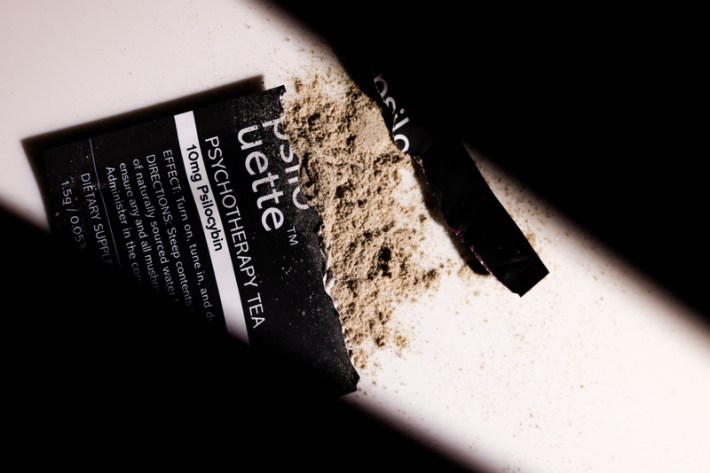
We drank one of Psilouette’s 1 mg psilocybin teas, which was touted as being mostly imperceptible.
But with a busy schedule, we did not get to kick back and put on some Portishead, instead rushing around our neighborhood doing errands.
Similar to other experiences we’ve had with psilocybin, one of the few things we felt was a cold sweat and a vague, weird feeling of lucid, though slightly removed, observation.
Psilouette recommends different protocols for those interested in “microdosing,” which itself has become a catchall phrase for taking small, sub-perceptual amounts of psychoactives, but is yet to be universally measured or defined.
Suggested courses include consuming one-to-two 1 mg. doses every other day, and another in which one-to-two doses are taken four days in a row followed by a three-day break.
High-potency macro doses, which Chase says have become the company’s most popular, are recommended at once a month or once a quarter.
The website features glowing testimonials from Psilouette fans.
Still, Tipado recommends taking today’s microdosing fever with a grain of salt.
“There is no convincing evidence that shows microdosing has significant benefits for one’s mental health,” Tipado says. “A 2021 study conducted by Balázs Szigeti at Imperial College London showed that a microdosed amount of LSD or psilocybin is as effective on improving one’s well-being as placebo. This illustrates the power of belief remains a strong factor in our lives–if one thinks something is effective, it usually becomes effective.”
Chase remains optimistic about a future in which entheogenic mushrooms are embraced and legal throughout the country, predicting it will first happen state-by-state.
He’s eager to see federal regulation so that the “smart people” can lead it and avoid the kinds of mistakes he witnessed during the opening up of cannabis laws. But in terms of the legal ramifications of openly sending psychedelic mushrooms products to the good people of the U.S., Chase isn’t losing a lot of sleep.
For one, he feels secure that the DEA is not currently hung up on prosecuting plant-based or natural psychedelic offenses, making it a low-risk offense that his two legal teams could turn into a relatively small punishment, especially given his adherence to doing things responsibly, as opposed to all the black market bullshit. Also, with a flair common to today’s CEOs, Chase half-jokes that an arrest would be, “Fucking great PR, bro. Like, lock me up and get a camera crew in there. I'm ready. I need a little break.”
To get started with Psilouette, you can book a consultation here.
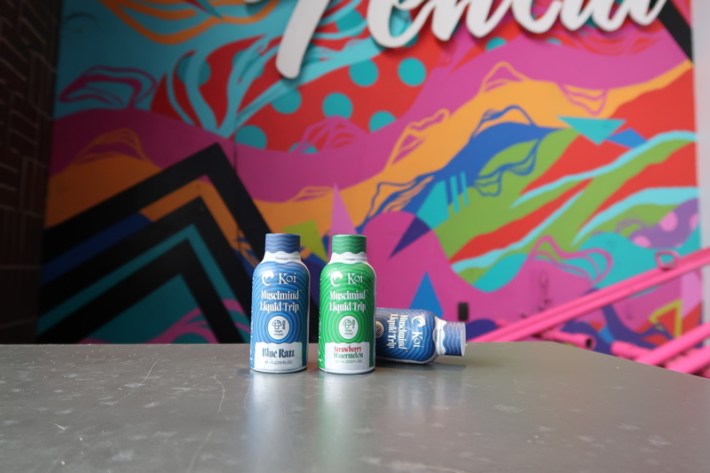
Listen to the Muscimol
Having visited one confusing store and after trying Psilouette’s microdose teas, we were about ready to pack this tale up.
We’d found an open source for getting the mushrooms people need to the people who want them. Then a marketing person from a brand named Koi reached out to us about their muscimol gummies and liquid shots, named Koi MusciMind. Koi also sells products with kratom, Delta-8, CBD, and THCs A, 8, P, and V. Both the gummies and shots teased their ability to create enlightening effects and enhanced creativity in the user via a safe, tested product.
Plus, they’re fully legal in California and many other states, and available online.
“It gives more of a euphoric and uplifting feel versus hallucinating,” the marketing man wrote, when we asked how the experience differs from psilocybin. With no existing experience with muscimol, even among some of L.A. TACO’s more experienced psychedelic warriors, we got samples and spread them around the office.
And we liked what we found.
L.A. TACO’s Memo Torres reported, “that shit sent me into the zone,” having eaten one gummy before he rearranged our entire studio while feeling “clear-headed and focused.”
On an atypical family-free weekend afternoon, we ate a gummy a few hours after eating 30 mg of cannabis gummies and had a most pleasant time. Sinking into the couch, we felt the melty sensation we’ve past appreciated in valium, and turned on Scarlett Johansen’s A24 movie Under The Skin.
We were enjoying the pleasantly relaxed, euphoric feeling so much, we ate another Koi gummy of the Peach-Razz flavor, which also lists sugar, light corn syrup, pectin, and orange and yellow food coloring in its ingredients, along with 1mg of muscimol and 30mg of nootropics including hostilis bark, Lion’s Mane mushroom and rhodiola extract, phenylethylamine, and vitamins B-12 and D-3.
Still buzzing warmly, a calm, clear, positive vibe enveloping us, the audio from the movie’s intro, full of discordant violins, industrial hum, and the whispers of the lead character, seemed to be coming from different angles.
Was that our neighbors chatting on the stairs? Was this movie designed to feel so soft and fuzzy in our ears?
Eventually, the elated relaxation turned into a nap, followed by a burst of energy that had us cleaning our apartment joyously before the family returned.
Unlike other microdoses we’ve enjoyed, the uplifting effects of Koi’s muscimol blend seemed to last through the next week. We felt happier, more cheerful, and less inhibited.
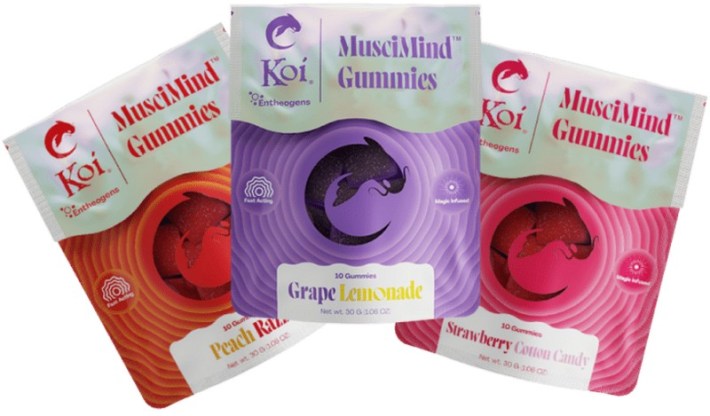
The product’s potential as a therapeutic agent seemed promising, the experience more enjoyable than our more recent dalliances with psilocybin doses. But what do we, who got a D- in both semesters of chemistry, really know?
To that point, another single gummy a few days later, without the accompanying cannabis, was barely perceptible at all, as we took a walk through Venice.
“While it appears that psychedelics have significant therapeutic potentials, exactly how psychedelics exerts this effect is still unknown,” says Tipado. “It still remains an active and highly investigated area in psychedelic psychopharmacology.”
Still, as opposed to some of the specious stuff we’d seen on the beach, Koi specified that it uses a pure muscimol extract taken straight from the mushrooms and is rigorously tested.
“We had been looking in the nootropic space for about six months,” says Cheyne Nadeau, VP of marketing for Koi, which has been around since 2015. “And we had seen a lot of products come to market that were using, like, not the best ingredients, right? And a lot of products companies were using extracts that contain a lot of bad stuff.”
“We want to make sure when our customers are consuming products… they know it's safe, and it's tested by us.”
Muscimol is derived from the amanita muscaria branch of amanita mushrooms. According to one knowledgeable source we asked, eating a little is known to provide pleasant sensations like we had, while eating a lot can actually make one trip.
These mushrooms are said to have been popular with Indigenous cultures and shamans in Siberia, where they were enjoyed and cherished as hallucinogens.
In addition to the peaceful, easy feelings, we especially like that amanita muscaria mushrooms, also known as fly agaric, are the same mushrooms we see stylized most frequently in popular culture, with their big red caps and white spots.
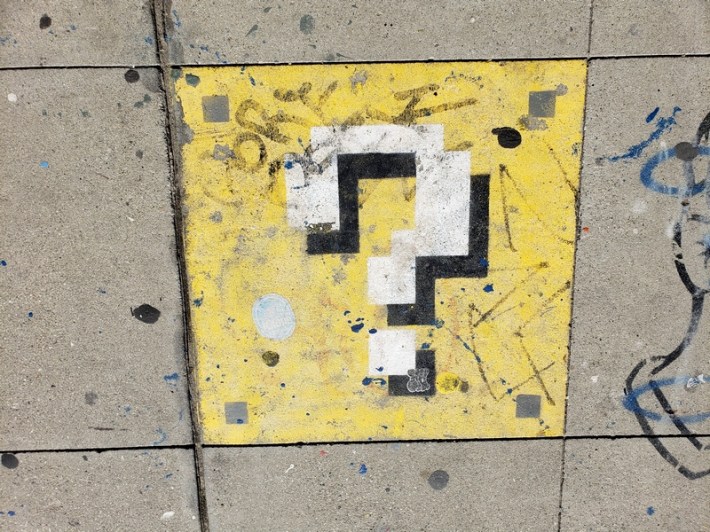
In other words, it’s the Super Mario mushroom, finally laying to rest all arguments trying to convince us that dude was not really tripping his nuts off while turning into a flying racoon and stomping perambulating mushroom heads through all those crazy games.
It's the mushroom of Alice, Link, and the Smurfs, too. Each and every one of them probably high to the blue gills.
Intrepid L.A. TACO reporter Lexis-Olivier ate four gummies recently, what’s described on the package as a “modest dose.”
“Definitely felt them,” he said. “I think muscimol is a great option for people that want to have a psychedelic experience but find mushrooms or LSD to be too intense. At the dosage I took, I didn't experience the deep introspective thoughts that people associate with Psilocybin mushrooms. I experienced more of a relaxing, euphoric, chill high that altered my sense of sound slightly. When I was listening to vinyl, it sounded like the speakers were further back then they were, if that makes sense... I felt surprisingly clear headed and focused.”
Ray summed the experience up by saying, “I think there's a lot of potential for these. Again, especially for those looking for a more mild ‘psychedelic experience.’”
It’s a sentiment that Nadeau agrees with, telling us, “I like to take these in the evening and if I'm going to going out with friends, or I'm going to a comedy show, where it's like, if I'm not drinking, I can take a few I know I'm gonna have like a pretty fun uplifting kind of experience.”
He notes that the muscimol provides the euphoric feeling that is aided by the other nootropics to create an entourage effect.
“It’s more about the blend,” he says. “Psilocybin, even at a micro dose level, sometimes causes you to go inward. And for the consumer that's not super versed, it might get a little bit deep… we'd like to consider our products as kind of like a diet version, or kind of like, the on-ramp to psilocybin.”
The lower intensity psychoactive could be something we’re seeing more of as psychedelics and entheogenic mushrooms gain greater acceptance in the world.
“With some emerging psychedelic pharmacology companies, the goal is to remove the ‘trip’ from the psychedelic and only leave the therapeutic benefits,” Tipado tells us. “This has been tricky, since pharmacology doesn’t necessarily understand why people benefit from psychedelics. So in the future, psychedelics may be a lot less trippy, and a lot more boring. Like Tylenol.”
Derek Chase employs musicmol in Psilouette’s “hypnotic stack” and “hypnotic tea,” but says he has already seen it come and go as a trend.
He feels an opportunity for greater acceptance was lost due to different brands’ “non-working product” and the difficulties of converting naturally derived muscimol into an active substance that works in something like a gummy.
“Amanita is still looking for a home,” he says. “I like to liken it to Ambien, which is the best known hypnotic out there.”
“I'm excited about the future,” Nadeua tells us. “We're kind of hitting the trend at the right time. But we also want to be on the forefront of just creating great products that people are comfortable with and feel safe [trying] and love to experience with us.”
Koi’s products can be purchased online.
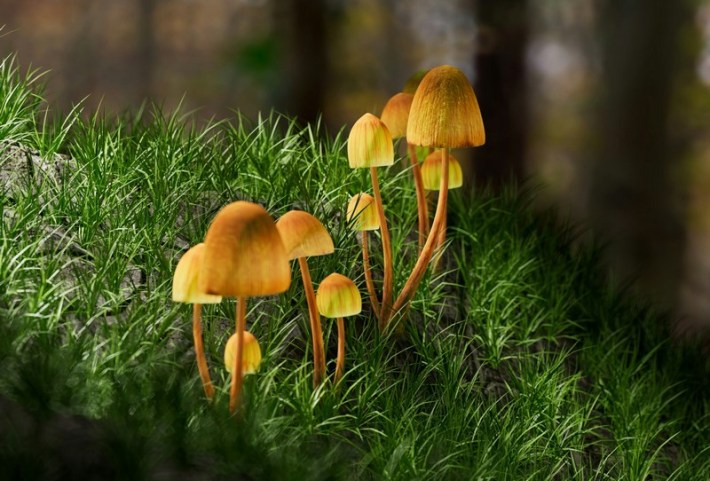
The Come-Down
We had glimpsed product trumpeting amanita muscaria as an ingredient in the beachside shop, making us give a little more consideration to the products it stocked and questioning whether there may be more legitimacy in them than we first presumed.
Still, the profusion of less dependable “psychedelics” still makes us question the shop’s dedication to only stocking brands that give careful consideration to their ingredients and formulas.
For now, we plan to “look at it closely,” putting better faith in brands like Koi and Psilouette that offer results of clinical testing of their products instead of just ambiguous hype and trippy imagery.
Of course, just because a trend is moving fast through society, making impressive claims, does not mean it’s meant to be embraced or experimented with by everybody.
“I don’t think psychedelics can heal the world and I don’t necessarily believe psychedelics are for everyone,” Tipado advises. “In some people, psychedelics can exacerbate diagnosed, as well as undiagnosed, maladaptive cognitive conditions and behavior.”
As a fungal revolution sprouts up around us, promising some relief from our society’s many mental health challenges, the movement appears to be led by actors that are in turns both dedicated and unscrupulous.
Hopefully, getting to know a bit about these resources helps us all begin to see the differences in their dedication as we consider approaching microdosing and full-fledged tripping alike.
Clarifying the intent of the people behind the products we consume, whether legal or not, can help move us all towards a future in which everyone can be confident that consuming them, at the least, won’t lead anyone of us tearing off their clothes and eating a friend’s face on It’s a Small World or something.
A brave new world indeed.
One of L.A. TACO's co-founders, Hadley Tomicki is a critic and journalist whose work has appeared in the Los Angeles Times, New York Magazine, and many other places.
Read More:
Stay in touch
Sign up for our free newsletter
More from L.A. TACO
An Update On Our Membership Drive: Some Bad News, and Good News
Some bad news, and some good news on our pledge to survive and stay sustainable.
Where To Eat This Weekend: Bulgogi Pupusas, Hemp Seed Guacamole, ‘Sticky Rice Sticks,’ and Korean Street Food In Venice
Plus an Roman chef veteran in a Hollywood apartment, chocolate Cuba Libres, Uzbeki plov with lazer rice, and cochinita melts in a Silver Lake yard. Here are the best things to eat around Los Angeles (and San Juan Capistrano!) this weekend.
How Your Business Can Benefit From Sponsoring L.A. TACO
When your company sponsors L.A. TACO, you receive a variety of quick and cost-effective benefits for far less than what we price our traditional advertisements and social media mentions at.
Juárez-Style Burritos Have Arrived in Southern California, And They are Already Selling Out In Less than An Hour
The month-old strip mall taquería in Anaheim make all their flour tortillas from scratch using both lard and butter, resulting in an extremely tender vehicle for their juicy guisados like carne en su jugo, carne deshebrada, chile colorado, chile relleno, and chicharrón. Every tortilla is cooked to order, too.
